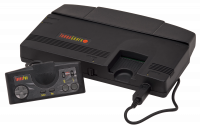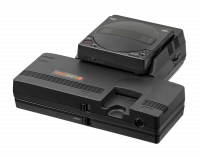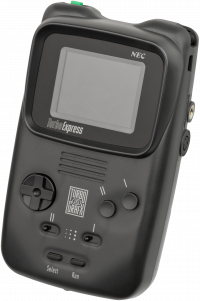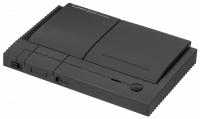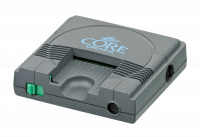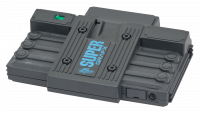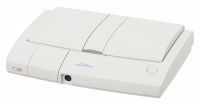TG16:TurboGrafx-16 Mods Wiki: Difference between revisions
mNo edit summary |
mNo edit summary |
||
| Line 35: | Line 35: | ||
* [[Media:TurboGrafx-16-Service-Manual.pdf|TurboGrafx-16 Service Manual]] | * [[Media:TurboGrafx-16-Service-Manual.pdf|TurboGrafx-16 Service Manual]] | ||
* [[TG16:TurboGrafx-16 Model Differences|Model Differences]] | * [[TG16:TurboGrafx-16 Model Differences|Model Differences]] | ||
* <s> [[TG16:Video Output Notes]] </s> | |||
* [[TG16:Connector Pinouts]] | * [[TG16:Connector Pinouts]] | ||
* [[TG16:Region Information]] | * [[TG16:Region Information]] | ||
| Line 56: | Line 57: | ||
<div class="boxed-list center-float clip-corner"> | <div class="boxed-list center-float clip-corner"> | ||
===Video Mods=== | ===Video Mods=== | ||
* [[TG16:Super SD System 3]] | * [[TG16:Super SD System 3]] | ||
* [[TG16:Super HD System3 Pro]] | * [[TG16:Super HD System3 Pro]] | ||
Revision as of 02:35, 6 September 2023
The PC Engine/TurboGrafx-16 is an 8-bit console from the fourth generation of video game consoles. Designed by Hudson Soft and manufactured and sold by electronics giant NEC, the console was initially released in Japan as the PC Engine on October 30th, 1987 and was released in North America (August 29th, 1989) as the TurboGrafx-16, followed by a limited European release as the TurboGrafx in 1990. The console used small credit card-sized cartridges known as HuCards and was also the first console to play games on optical media via a CD-ROM expansion, first released in 1988. It was also the first console to have a handheld variant — the TurboExpress — which could play the same games as the home consoles. At least 17 different model variations were released, with the most significant models being part of the TurboDuo (or PC Engine Duo) line which incorporates the CD-ROM² add-on directly into the hardware. Although it was a success in Japan, the console saw sluggish sales in North America and was discontinued there by 1993. NEC and Hudson would unsuccessfully follow up on the PC Engine with the 32-bit PC-FX in 1994, but the PC Engine continued to see releases in Japan until 1999.
Flash Carts |
3D Printables |
Replacement Parts |
Other |
